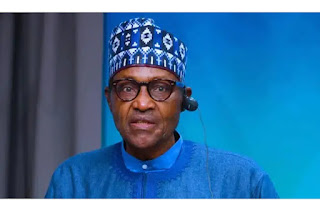Air ticket, rice, diesel, pay TV, pure water — how inflation is hurting Nigerians on all sides
According to the UN, the middle class is made up of people who spend between $10 (N5,780) to $100 (N57,800) per day. For AfDB, the middle class in Africa is made up of people who spend between $2 (N1,156) and $20 (N11,560) per day.
Since the pandemic broke out in 2020, Nigerians have been reeling from one hardship to the other: from lockdown and its economic effects to the EndSARS protest to a full-blown recession — and now to war in Ukraine affecting a nation like Nigeria, 8,000 kilometres away.
As of 2020, a good number of people across the world, including Bretton Woods institutions, projected that the world would be a better place by 2022. Little did they know that most of the world, including Nigeria, would still be grappling with the more and more increase in prices, beyond the control of any organisation, government, or private individual.
Back in 2020, when the bag of 50kg of rice, arguably the most popular staple in Nigeria, hit N26,000, Nigerians complained, blamed it on government policies; immature closure of borders for food import when the local market was regarded as “not ripe enough” to sustain the nation.
By 2021, President Muhammadu Buhari, in his independence day speech, promised Nigerians that food prices would soon crash across the nation.
This is evident in the fact that every sphere of the Nigerian life has been affected by inflation. Every stratum of national consciousness has dealt a hard blow — the poor, the rich, and the not-so-middle class.
Take water for example; one sachet of water used to go for N5. The target market for this product was the poor and some part of the middle class. In just two years, the retail price of “pure water” has at least doubled. Retailers now sell for N10 per sachet or N20 per sachet. In some neighbourhoods in Lagos, it is sold at two sachets for N30. The cheapest anyone would find is double the price in 2020.
In 2020, the cheapest flight in the country was about N16,500 from Lagos to Akure. Today, that same flight cost N37,000 on March 22, 2022. Lagos to Abuja, regarded as the most popular route, has jumped from N22,500 to N50,000. Most of that jump happened in the last two months, giving little room to adjust to the shocks. If flying was indeed for the rich, it just became even more exclusive
Speaking at an event earlier in the month, Aliko Dangote of Dangote Group warned that the war in Russia and Ukraine would have dire consequences for Nigeria if the country does not work hard to stem the effect of the crisis.
The first obvious consequence of the Russian war on Nigeria is the rise in the pump price of petrol




Comments
Post a Comment